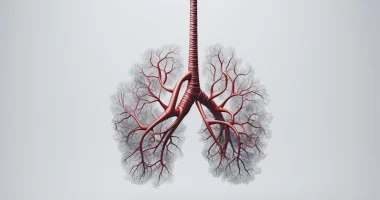Amnesia means someone can’t remember things they used to know. There are different kinds of amnesia, and sometimes the signs of each kind can be similar. One person might have more than one type of amnesia.
If someone forgets small things now and then, that doesn’t mean they have amnesia. Amnesia is when someone loses a lot of their long-term memory because of sickness, a head injury, or something very upsetting that happened to them.
Remembering things is really complicated and involves lots of parts of the brain working together. Even though scientists have learned a lot, they’re still figuring out exactly how it all works.
When someone has amnesia, they can forget important moments in their life, like big events or even people they know well. They might also forget things they’ve learned.
Most individuals with amnesia can still think clearly and know who they are. For some people with amnesia, it’s hard to think about what might happen in the future. That’s because our brains use our past experiences to imagine what could happen next.
Types of Amnesia
There are lots of different kinds of amnesia, and sometimes people can have more than one type at once. Amnesia can happen for a little while or stick around for a long time.
Here are some common types:
- Anterograde amnesia: This means someone can’t remember new things. It often comes from a brain injury, like getting hit on the head. But they can still remember stuff from before the injury.
- Retrograde amnesia: This is when someone forgets things that happened before their head injury but can remember new things.
- Transient global amnesia: This is a rare one where someone loses all their memory for a little while. It’s more likely to happen to older people with blood vessel problems.
- Traumatic amnesia: This is from a hard hit to the head, like in a car crash. It’s usually temporary and depends on how bad the injury is. It can also show if someone has a concussion.
- Fugue or dissociative amnesia: Rarely, someone can forget who they are and everything about their past, usually because of something really upsetting. Usually, they remember again after a while, but not always everything.
- Posthypnotic amnesia: This is when someone can’t remember what happened when they were hypnotized.
- Source amnesia: Someone might remember something but not where they heard it.
- Alcohol-induced amnesia: Sometimes heavy drinking can make someone forget things.
- Prosopamnesia: This is when someone can’t remember faces. They might get it later in life or it comes by birth.
There’s also something called childhood amnesia, where adults can’t remember things from when they were really young. It’s not really a problem, though—it’s just because kids’ brains are still growing.
Causes
Any injury or disease that influences the brain can mess with memory. It is a big job that involves lots of different areas of the brain working together.
Damage to some special brain parts called the limbic system can cause amnesia. These parts, like the thalamus and hippocampus, control both our feelings and our memories.
Medical causes
Amnesia can happen because of different kinds of brain problems. Here are some:
- A stroke, which is when blood flow to the brain gets blocked or interrupted.
- Sicknesses that cause brain swelling, like encephalitis. This usually comes from infections caused by bacteria or viruses, or sometimes from the body’s immune system acting up.
- Not getting enough oxygen, can happen during a heart attack, when someone can’t breathe properly, or if someone breathes in carbon monoxide.
- Some medicines, like Ambien, which is used to treat sleep problems.
- Bleeding in the space between the skull and the brain, called subarachnoid hemorrhage.
- Tumors in the brain that affect the parts in charge of memory.
- Certain kinds of seizures.
- Getting hit on the head, which can make someone forget things for a little while.
- Having surgery or being put to sleep with anesthesia, can make it hard to remember what happened right before or after.
Wernicke-Korsakoff syndrome, which comes from drinking too much alcohol for a long time or not getting enough vitamin B1. It makes memory worse over time and can cause other problems too, like trouble moving and not being able to feel things in the fingers and toes.
Symptoms
Different types of amnesia come with different signs. Here are some common ones:
- Trouble learning new things (called anterograde amnesia)
- Forgetting incidents from before, like past events or things you used to know (called retrograde amnesia)
- Having memories that aren’t real, either completely made up or mixed up with real ones (a thing called confabulation)
- Having a hard time remembering things you just heard or saw (short-term memory problems)
- Forgetting a little or a lot of everything (partial or total memory loss)
- Feeling confused
Diagnosis
When someone shows signs of memory loss, the healthcare provider first needs to make sure it’s not from other conditions like dementia, depression, Alzheimer’s disease, or a brain tumor.
The healthcare provider will ask lots of questions to understand what’s going on, which might be hard if the person can’t remember much. Family caregivers or members might need to help out.
Before talking to anyone else about the person’s health, the healthcare provider will ask for permission.
They’ll ask questions like:
- Can the person remember things from recently and a while ago?
- When did the memory problems start and how did they happen?
- Could things like a head injury, surgery, or stroke have caused memory loss?
- Does anyone in the family have brain or mental health issues?
- Do they drink alcohol or take any medicines?
- Have they ever used illegal drugs like cocaine or heroin?
- Are they having trouble taking care of themselves?
- Have they ever felt really sad or had seizures?
- Have they had cancer before?
The healthcare provider will also do a check-up, testing things like reflexes, senses, and balance, as well as the person’s memory and judgment.
All this info helps figure out how bad the memory loss is and what treatment might help.
To see if there’s anything wrong inside the brain, the doctor might order tests like a CT scan, MRI, or EEG.
Blood tests can show if there’s an infection or if the person’s missing any important nutrients.
Treatment
Often, amnesia gets better on its own without needing special treatment. But if there’s another problem causing it, like a sickness or feeling really stressed, treating that can help.
Talking to someone who’s trained to help with thoughts and feelings, like a therapist, might assist some individuals with amnesia. Sometimes, being put in a special state called hypnosis can help bring back forgotten memories. It’s also important to work on getting back memories and dealing with any feelings that might be making amnesia worse.
Doing things like meditation or calming activities might help relieve the mind, which could make it easier to remember things.
Family and friends can be a big help too. Looking at old pictures, smelling familiar scents, or listening to favorite songs might jog the memory.
Right now, there aren’t any medicines that can bring back memories lost because of amnesia. But treating whatever caused the amnesia in the first place can help.
For instance, if someone has Wernicke-Korsakoff syndrome because they don’t get enough of a vitamin called thiamin, eating foods with lots of thiamin can help. These include whole grain cereals, beans, nuts, pork, and yeast. And if someone has this syndrome, they should stop drinking alcohol.
If someone gets amnesia from a head injury, they might need surgery to get rid of extra blood in the brain. And if someone has encephalitis, they might need medicines to calm down the swelling in the brain.
Outlook
Usually, amnesia gets better without needing any special treatment.
It’s important to talk to a doctor to figure out why the memory loss is happening. The sooner you start treating it, the better chance you have of getting your memory back.
Here are some questions you might ask the doctor:
- Why am I forgetting things?
- Will I always have trouble remembering stuff?
- What can I do to help my memory get better?
- Do I need to do any special tests, and how should I get ready for them?
- Do I need to change anything about my life to help my memory?
Summary
Amnesia can be a challenging experience, but with time and sometimes with the right treatment, many people see improvements in their memory. Seeking help from a doctor and exploring various therapies can offer hope and support in managing memory loss.
Family and friends play a crucial role in providing emotional support and aiding in memory recall techniques. While there’s no one-size-fits-all solution, understanding the causes and available treatments can empower individuals to navigate their journey toward better memory health. With patience, persistence, and the right guidance, individuals facing amnesia can work towards a brighter outlook and improved quality of life.
External Links








